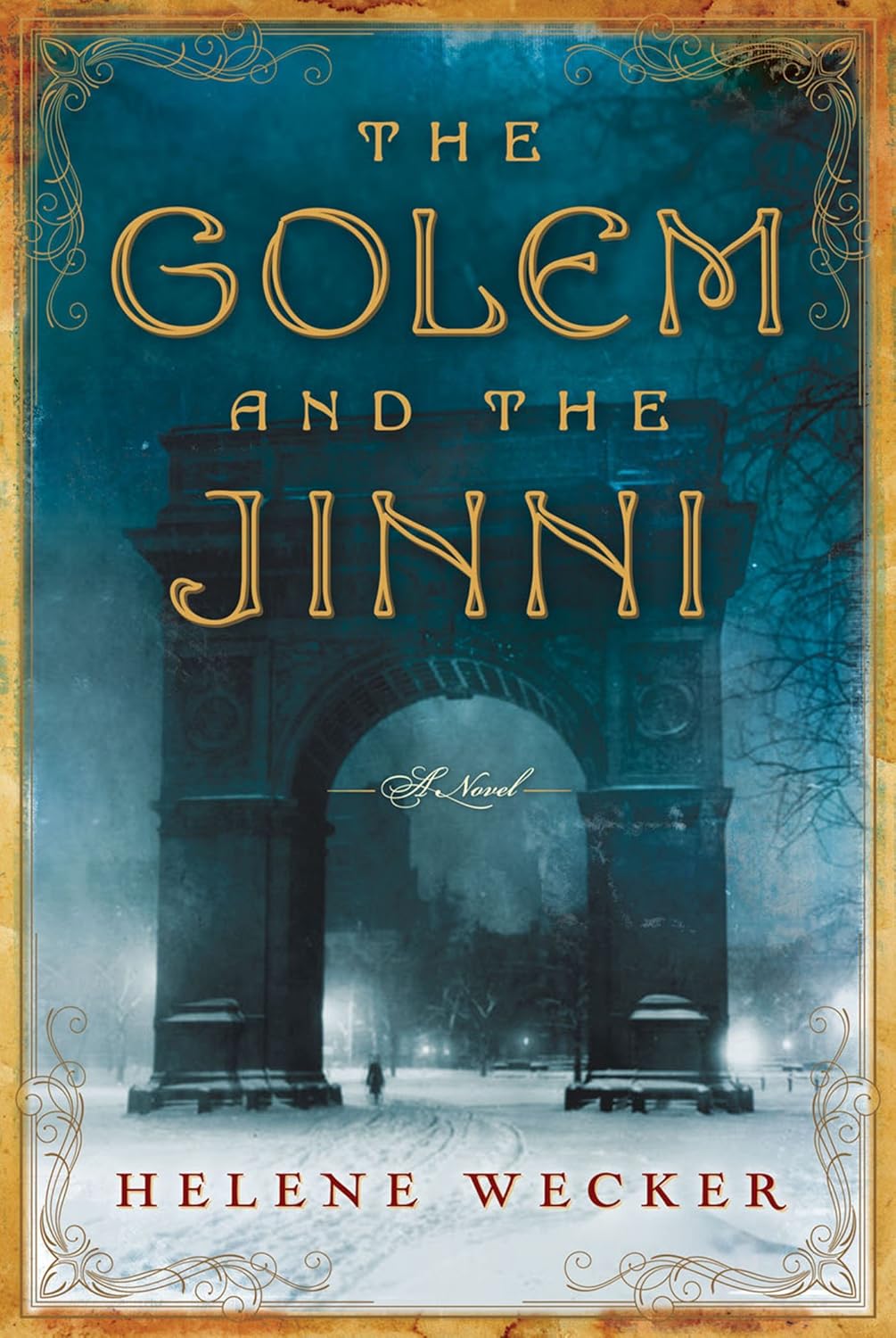The Golem and the Jinni: Helene Wecker
Can you remember reading books as a child? Do you remember reading tales of magic and wonder that dazzled your mind with wild adventures set in faraway places? I sure do. And I think that as a reader, I'm always trying to retrieve that feeling I once had when reading Marguerite Henry's King of the Wind or Mark Twain's Huckleberry Finn. Late;y, I've been having trouble recapturing this experience. So many books are full of slick, quick-paced prose that leaves little chance a reader will become wrapped up in what he or she is reading. I think editors believe we don't have the time to read such stories any more. There seems to be this delusion that people won't read stories with detailed description and back stories. But I was pleasantly surprised to find a novel with these very elements just a few weeks ago.
In Helene Wecker's debut novel, Chava, a magical clay being called a golem, comes to New York City in 1899. Created to serve a master, she is adrift in this great city after her master dies before he can arrive on the shores of America. Chava is taken in by a kindly Rabbi who lives in the Jewish quarter of the city.
At about the same time, Ahmad, a jinni from the deserts of Syria (another magical being, though this one is made of fire), is released from his copper flask of a prison by a tinsmith in little Syria, an Arab section of New York City. The tinsmith helps Ahmad adjust to life in the city, for the jinni is not yet free. He is still bound by his jailer, though he has no memory of who that might be. He only knows he has been trapped for thousands of years.
And then, one night, these two creatures meet. Though people cannot recognize that they are not human, the golem can see that the jinni is made of fire, and the jinni can see that she is made of clay. But this does not mean they will immediately become the best of friends. Ahmad is lonely, and a bit reckless. Chava is timid, afraid of discovery. She is not willing to immediately befriend the man of fire. She is not sure if she can trust him.
And that is all I will tell you. From this point on the story goes its own way, full of enticing descriptions of Jewish baked goods and Syrian treats. We are allowed a glimpse of two exotic, pulsating ethnic neighborhoods at the turn of the twentieth century, all through the eyes of these magical beings who are as new to the city of that era as we would be.
 |
| The author, Helene Wecker. (image source: helenewecker.com) |
Wecker is masterful at combining the fairy tale elements of these two mythologies with a turn-of-the-century period novel. As the story is a marriage of two cultures and mythologies, so too is the writing a marriage of simplicity and complexity. There were times I thought I was reading text from an old Child-Craft volume followed by times when I thought I was reading the poetic prose of Mark Helprin's A Winter's Tale. However, at no time does this sink into a childish Disney-like story, nor does it bog down with the weight of a period piece that is filled with too much detail. Wecker knows adult readers have a desire for mature prose and child-like wonder and magically keeps this balance throughout the whole of the novel.
There are many secondary characters in this book that complimented this balance; a wonderfully villainous Rabbi who practices dark, Kabbalistic arts; Saleh, a mad ice-ream vendor; Fadwa, a young Syrian girl; and many others. The ice-cream vendor really stood out in this mix. His story was fascinating. I can imagine that if this were ever made into a movie (a full mini-series would certainly be worth it here) the character of Saleh would be a juicy part for any veteran actor looking to pick up a top award.
I did feel that the end of the novel lost a bit of its originality at the end. I had the feeling an editor demanded that the end include a bit of a stereotypical Hollywood-climax. However, this did not have a negative effect on the book. It merely was not something I had hoped to find at the end. It would, however, make adapting this to a mini-series quite simple, and the screenplay could remain extremely true to the novel.
The Golem and the Jinni was nominated for a 2014 Nebula Award for Best Novel. There have been complaints about its length and pace but if you've ever read any of my reviews you know that I only consider these a plus for any book.
This is the sort of book in which you can really lose yourself, perhaps best read on a cold winter's night. If you love to read magical stories filled with exotic settings and empathetic characters, be sure not to miss this first novel from a very talented writer.
Check out Helene Wecker at her website: HeleneWecker.com
Click below for the eBook version:


No comments:
Post a Comment